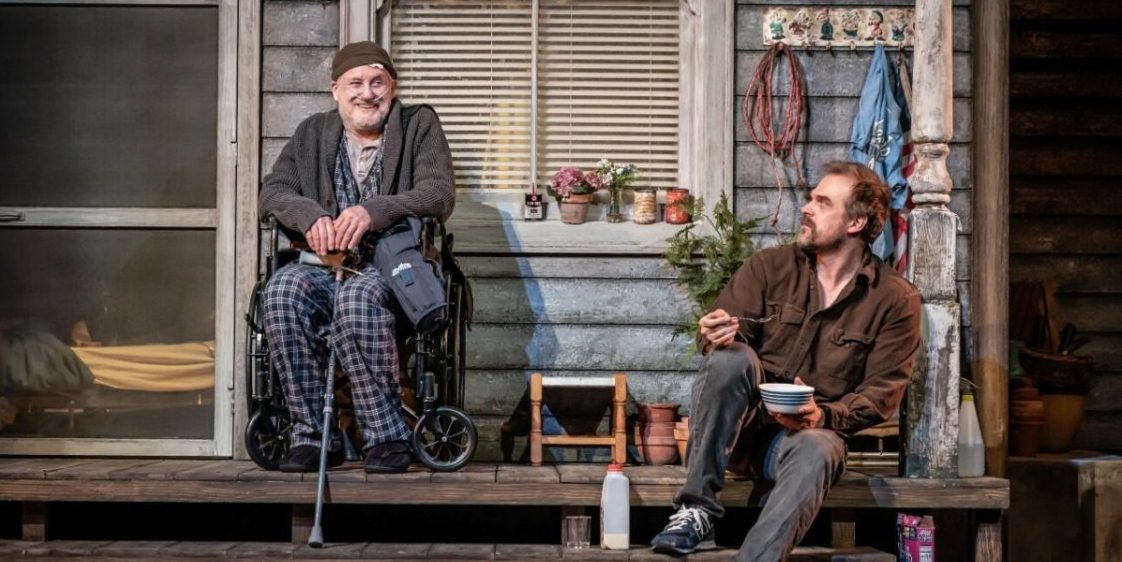There is much to love in Rebeck’s writing. It’s fresh and refreshing, sophisticated but highly accessible, emotionally honest but never cheesy, sharp without being show-offy, and always very funny. Some of the plays of this prolific writer are scandalously underrated. The overlooked “Our house” (2010) for example comes immediately to mind, being the most brilliant and daring play written to date about reality tv and its many dangers. One can only hope it will be rediscovered and reappreciated soon enough, like Rebeck’s other quieter triumphs.
“Mad House” (forget about political correctness; the phrases “loony bin” and “nuthouse” are freely used here) is no King Lear, and not even All My Sons, but as traditional family plays go, it has plenty of rewarding moments to treasure and savour. Pullman gives a knockout performance as the charmingly despicable dying father who insists on keep living and tormenting all his sons (including one nasty daughter) and everyone else who dares come near him. Pity there’s less of him in Act II, the more surprising and edgy act. But Pullman’s absence makes room for Sinead Matthews’ presence, as his tyrannical daughter, evil and vindictive, cruel and compassionless individual. Matthews bravely devours the disconcerting part that gives her zero sympathies from the audience.
Rebeck says in the programme that “America really does seem like a madhouse right now”, and Matthews’ character, bullying and showing no respect and tolerance to the weak and different, may (or may not) be the play’s Donald Trump in drag. Akiya Henry as Lillian, the hospice nurse of the father, on the other hand, is the play’s heart. Lillian is a survivor of a devastating personal tragedy, an immigrant/refugee full of pain and anger and every possible reason to protest against the madness and injustice around her, and Henry nails it with dignity and great humor. Her special rapport with Michael, the loony bin graduate who takes care of his dad until the shocking end, is another highlight of Moritz Von Stuelpangel’s tight and crisp production (his fifth collaboration with Rebeck). This brings us to David Harbour’s performance as Michael. it has a “Laurence Olivier award” splashed all over it from the moment he’s revealed to us at the breakfast table until his final exit.
This is a raw, shattering, multi-layered, and electrifying star performance. Is Michael really “crazy” or is he just a gentle soul in a crazy world? It doesn’t really matter, as long that it’s clear who walks away with the whole show.

